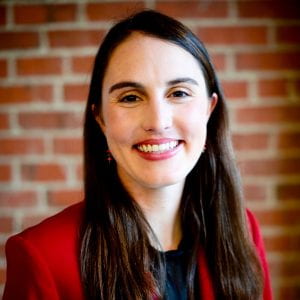Graduate student reports on NHC podcasting institute
The National Humanities Center’s virtual podcasting institutes provide hands-on, immersive training to translate research, commentary, and community-engaged narratives into podcast episodes. The OHC’s new initiative provides institute tuition for a graduate student in January and faculty in June. The OHC accepts applications for future NHC podcasting institutes each fall.
 During the week of January 8–12, 2024, I was fortunate to be a part of a wonderful group of around 80 graduate students from across the nation and disciplines in the immersive week-long National Humanities Podcast Institute—the virtual workshop that trained us to develop “collaborative, public-facing, research-based humanities content using digital media.”
During the week of January 8–12, 2024, I was fortunate to be a part of a wonderful group of around 80 graduate students from across the nation and disciplines in the immersive week-long National Humanities Podcast Institute—the virtual workshop that trained us to develop “collaborative, public-facing, research-based humanities content using digital media.”
My podcast cohort included three other graduate students from California and Virginia. Together we created a podcast titled “Cultivating Wholeness as a Graduate Student.” In this podcast, the four of us discussed what we are doing to cultivate wholeness and face the challenges that come with graduate school. Our stories demonstrate a shared belief that cultivating wholeness means more than becoming a well-rounded individual, but a process of self-discovery and a practice of authenticity. It was both difficult and inspirational to create an original audio work virtually and in such a short time.
Moving forward, I plan to use the skills I gained in the podcast institute to collaborate with my colleagues in public health to tell audio stories of important community-based health advocacy efforts, discuss key barriers to health equity, and explore responses to address fundamental social drivers of health inequities moving forward. Through podcasting, we will gather voices from impacted community members, leaders of local health organizations, public health officials, and advocates addressing these issues. A major goal of this podcast project is to add depth and understanding to contemporary public health equity efforts that are applicable to a range of potential audience members through a public podcast.
-Kisa Clark, PhD candidate, Communications and Media Studies at the School of Journalism and Communication